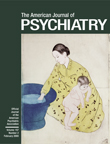Even in this era of easy electronic communication, and an elegant sufficiency of scientific conferences, psychiatry is, more than many others, a specialty in which it is possible to practice in relative isolation from colleagues. For this reason, among many others, the development of clinical, scientific, and ethical standards in our profession is highly dependent on the various national organizations of psychiatrists that exist in order to further the interests of our specialty and the patients it serves.
From my contact with North American psychiatrists, it seems that we in Australia are looked upon with some degree of fondness, interest, and collegiality. This seems to stem in part from the fact that we both live in large land masses on either side of the Pacific and both have liberal democratic and multicultural traditions, advanced educational systems, and British colonial origins. The fact that international attendees of psychiatric conference visiting Australia often enjoy snorkeling on the Great Barrier Reef does no harm to this positive relationship. A reasonable number of North American readers, therefore, may be interested in reading about the history of the Royal Australian and New Zealand College of Psychiatrists and about the organization it has grown into.
Menders of the Mind covers the history of the first 50 years of the binational College from 1946 to 1996 in a comprehensive and thoroughly researched manner. The detailed scholarship necessary for such a work might have resulted in a dry and stiff collation of a multitude of facts and figures of largely parochial interest, but such a fate was avoided by the College’s choice of two talented historians—Hilary and Bill Rubinstein—as authors for this commissioned work.
On an obligatory skeleton of the historical facts, they have built a body of dynamic narrative that brings into relief a number of major themes. One major theme relates to the dedication and commitment required in the early years to enable the then Australasian Association of Psychiatrists to evolve from a small, hard-working, well-intentioned, but politically and administratively untutored group of clinician colleagues into a substantial, effective, and highly professional medical specialist College, the third largest in Australasia.
A second theme focuses on the training, examination, and certification of psychiatrists—a core activity for the College—which distinguishes it from its (19-times) larger U.S. counterpart. The notable and well-described educational and examination initiatives developed by the College have resulted in a rigorous 5-year training program with high standards characterized by an eclecticism that melds the best of the North American and U.K. psychiatric training programs and includes distinctly home-grown elements, such as written case reports.
A third theme relates to the manner in which the College responded to major psychiatric scandals, especially the Chelmsford crisis. Between 1965 and 1979, more than 1,100 patients were treated with deep sleep therapy at the Chelmsford Private Hospital in Sydney by the flamboyant psychiatrist Dr. Harry Bailey and his colleagues. Complications from these treatments resulted in 24 deaths, and another 24 patients who received the treatment committed suicide. The College’s response to this black mark in Australian psychiatry was slow and inadequate. The reasons for the unsatisfactory response are objectively and unaccusingly described by the Rubinsteins, as is the manner in which the College learned from its shortcomings, modified its quality assurance and disciplinary mechanisms, and responded much more robustly to a subsequent psychiatric scandal.
Several sections of Menders of the Mind are likely to be largely of interest to those of us living “Down Under,” especially the sections relating to the description of the role played by individual psychiatrists in the setting up of the College and the development of committees. However, there is sufficient general coverage, not only of the major themes already described but also of other topics such as psychiatric research in Australia and New Zealand and the image of the psychiatric profession, to make this book a worthwhile addition to the bookshelves of those U.S. and Canadian readers with a broad interest in recent psychiatric history and in reflecting on how colleagues in like-minded countries tackle the critical challenges that face our profession.

